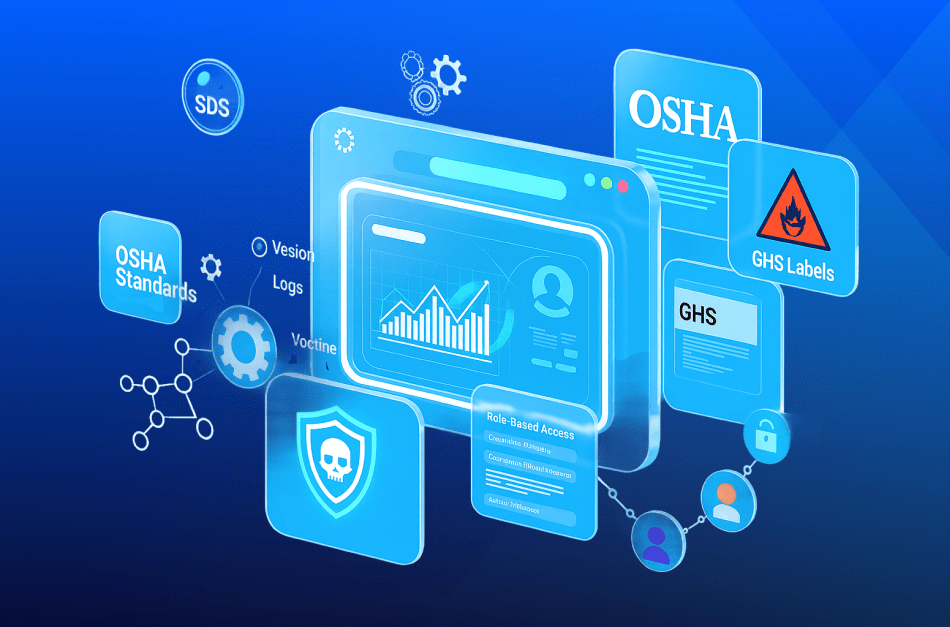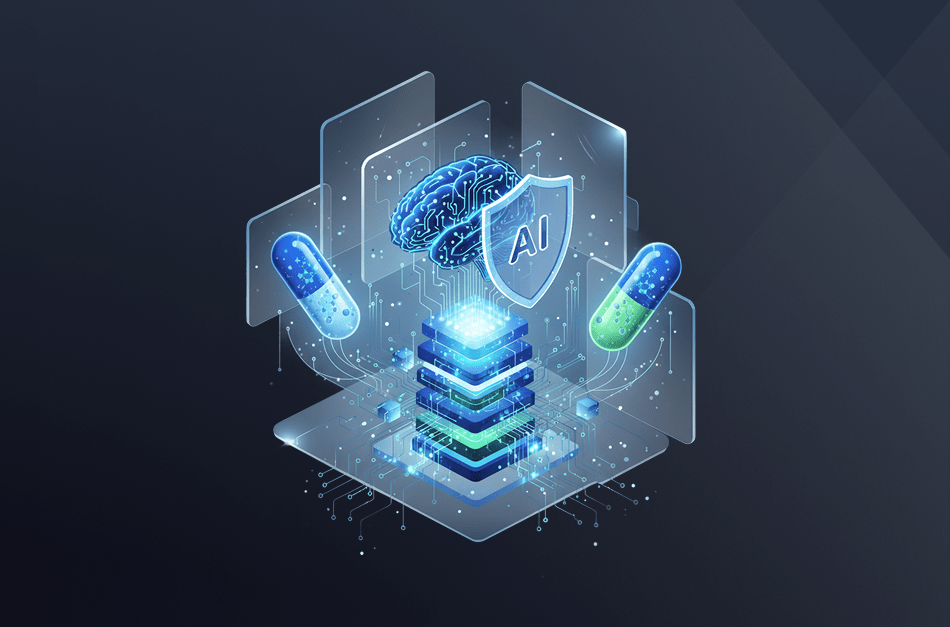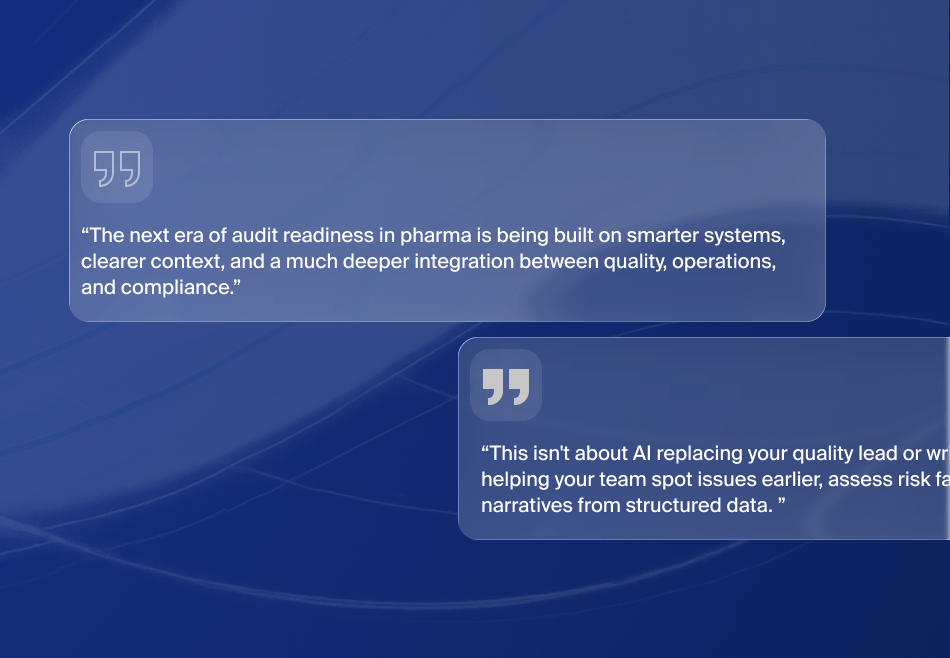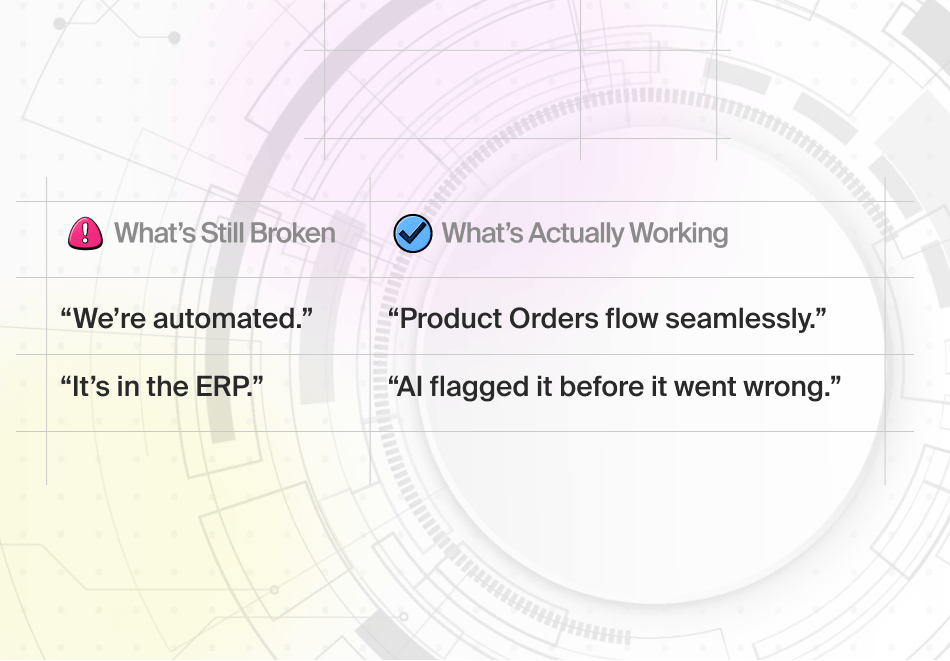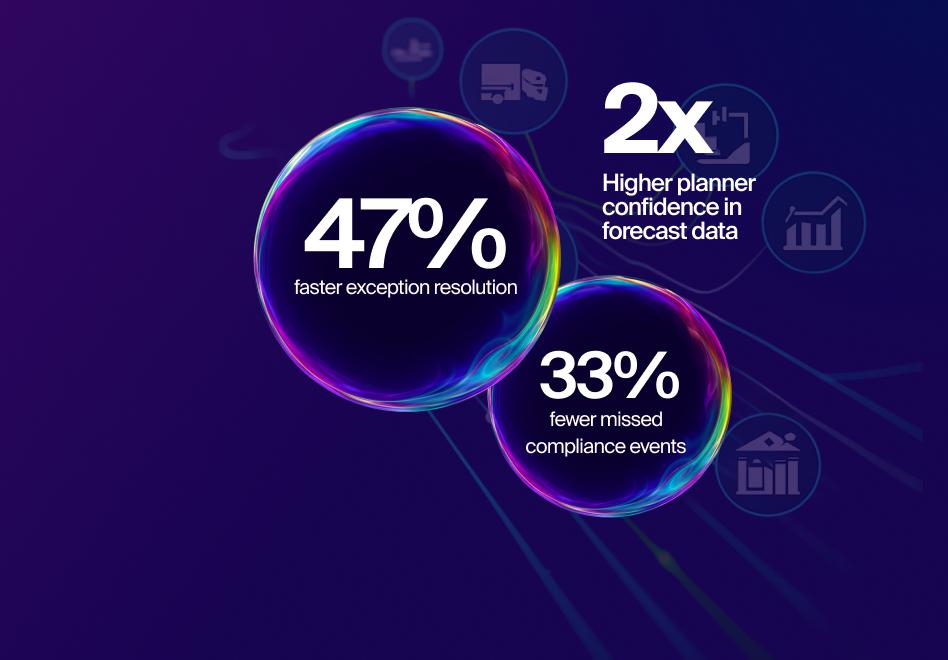Introduction
Artificial intelligence is one of those science-fiction-sounding phrases, but what does it mean to people in the pharmaceutical industry? What is the difference between AI and its cousin, ML, which means machine learning? How can the two types of computer software make pharmaceutical companies more efficient and profitable?
The answers are in what they do and how AI and ML work together.
AI can be defined as using computer algorithms—math—to perform tasks requiring human intelligence. IBM defines AI as “leveraging computers and machines to mimic problem-solving and decision-making capabilities of the human mind.”
“It is the science and engineering of making intelligent machines, especially intelligent computer programs. It is related to the similar task of using computers to understand human intelligence, but AI does not have to confine itself to methods that are biologically observable,” John McCarthy was quoted as saying in a 2004 paper.
So if AI acts like somewhat like a human mind to solve problems, how is machine learning different?
“Machine learning is the study of computer algorithms that can improve automatically through experience and by the use of data. It is seen as a part of artificial intelligence,” Wikipedia states.
In essence, the two types of programs work together to analyze information.
For example, say the first 100 production runs of product XYZ1000 have a 70 percent success rate in terms of meeting basic quality standards. Analysis shows the difference between success and failure is one step. Every run where the temperature was kept within a 0.2-degree range succeeded. Every run where the temperature exceeded 0.5 degrees failed. Logic says that keeping the temperature within that narrow range boosts success which, in turn, improves productivity.
Machine learning tells operators, “keep the temperature within 0.2 degrees for this one step.” Artificial intelligence builds on machine learning. It says, “by keeping everything else the same and keeping the temperature in this single step within 0.2 degrees,” the company will see:
- More efficient use of raw materials
- Less waste
- Greater profits
- A host of other benefits
So how does a pharmaceutical manufacturing company benefit by using AI and ML? Let’s look at the numbers.
By the Numbers
- $100 billion: The amount of money AI and ML can generate in the US health care industry alone.
- $161 million – $2 billion: The estimated cost of getting a new drug through clinical trials and obtaining FDA approval.
- 72 percent: The percentage of healthcare companies believing that AI will be crucial to how they do business in the future.
- 62 percent: The percentage of healthcare companies considering investing in AI soon.
- 61 percent: The percentage of companies believing that AI will help them identify opportunities they will otherwise miss.
- 13.8 percent: A study from the Massachusetts Institute of Technology estimates the number of drugs successfully passing clinical trials.
- 11 percent: The percentage of businesses who have not considered investing in AI.
Sources: Digital Authority Partners and PharmaNews Intel.
Start leveraging the power of AI for your pharmaceutical company.
How AI Helps the Pharmaceutical Industry
Add in a third element—large data sets created by Internet of Things (IoT) sensors wired into a company’s network—and the result is a technology-savvy, company that can see ways to improve efficiency. AI runs computations that estimate probabilities based on known numbers.
Going back to our earlier example, 30 percent of the production runs failed quality standards. That’s the new baseline. Having computers that can finely tune machines reduces tolerances.
Another way pharmaceutical companies are using AI is to speed up drug discovery. It sifts through large datasets from clinical studies and other sources to detect hidden patterns, performing tasks in seconds that once took months. Learning every time they perform a task, AIs run through millions of tasks.
“Drug discovery is being transformed through the use of AI, which is reducing the time it takes to mine the vast amounts of scientific data to enable a better understanding of disease mechanisms and identify new potential drug candidates,” says Karen Taylor, director of the Centre for Health Solutions at accounting and consultancy group Deloitte. “Traditional drug discovery has been very fragmentary, very hit and miss,” she adds in The Guardian article.
The rapid creation of effective Covid-19 vaccines is a direct result of AI and ML in the pharmaceutical industry, Taylor states.
Figure: 1 Funding in Artificial Intelligence in the Pharmaceutical Industry
How valuable is AI to big pharma? Britain’s two largest drug makers—AstraZeneca and GSK—recently funded the Cambridge Center for AI in Medicine at the prestigious university. GSK already opened a £10 million (roughly $13.5 million) in central London. This lab is near Google’s DeepMind AI lab.
DeepMind founder Demis Hassabis recently unveiled Isomorphic Labs, which intends to use an AI-first approach to discovering new drugs. DeepMind’s AlphaFold2 AI system solved the 50-year-old challenge of protein folding. AlphaFold is capable of predicting the 3D structure of protein directly from its amino acid sequence to atomic-level accuracy, Hassabis said in a recent Isomorphic blog post.
“One of the most important applications of AI that I can think of is in the field of biological and medical research, and it is an area I have been passionate about addressing for many years,” he said.
Hassabis considers biology an extremely complex and dynamic information processing system, making it a perfect match for AI.
“But just as mathematics turned out to be the right description language for physics, biology may turn out to be the perfect type of regime for the application of AI,” he said.
The Guardian article also looks at the money: Using older methods, nine of every 10 drugs in development will fail. The average drug development time is 10-12 years. With AI, the success rate is expected to at least double and possibly boost success from 1:10 to as high as 1:2.
How Can SMBs Benefit from AI?
While having $13 million in labs devoted to research is a great idea, many companies don’t have that large of an R&D budget. At least one well-known company has enterprise resource planning modules that integrate AI: Microsoft.
Figure: 2 AI Powered Insights by Microsoft


One example is Microsoft Dynamics 365’s Customer Insights is one of several modules that has AI built in. When pharmaceutical companies combine Dynamics’ Business Intelligence module with its Integrated Chemical Management (iCM), the two work together to mine your pharmaceutical data.
iCM is specifically designed to handle tasks like System of Record (SOR) for chemical and regulatory data plus compliance with cGMP regulations.
Add in Dynamics’ Supply Chain Management module and pharmaceutical manufacturers and suppliers can know to the second how much of any given product they have. Using AI and other information mined from a thorough inventory review, companies can accurately predict how much of any given precursor chemical they need to meet forecast demands. With this information, companies can place orders when costs are low or keep just enough on hand.
The Bottom Line
Pharmaceutical companies already create mountains of data. Instead of losing valuable nuggets of information such as trends and insights, artificial intelligence can sort through it. AI can:
- Perform comparatively mundane tasks extremely fast
- Provide your company with ways to create new products at lower costs
- Produce new drugs much faster than before
- Reduce the number of new drug failures
Using Microsoft Dynamics 365 modules equipped with the power of AI will ultimately help boost your bottom line.





